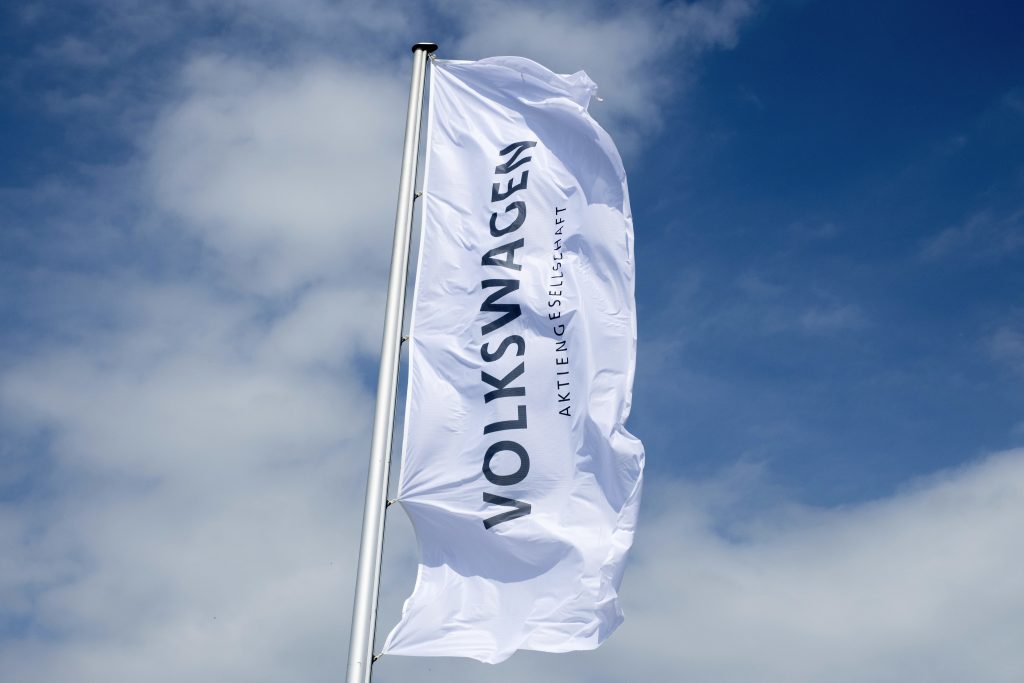The UK is 101,840 electric vehicles (EVs) ahead of the Climate Change Committee’s adoption curve, data compiled by Volkswagen Financial Services UK’s second quarterly EV tracker report shows.
The report, whose first part was released in spring, aims to evaluate the progress being made as the nation moves towards mainstream adoption of electric vehicles and greener transport solutions that will help achieve the UK Government’s net-zero targets.
The UK had 833,000 licensed ultra-low emission vehicles at the end of March 2022 – the equivalent of 1 in 50 of all vehicles on UK roads. To put this into context, this was an increase of 71% compared to the same time last year.
The numbers depict a steeper-than-needed adoption rate, which is to be welcomed if the Climate Change Committee’s ultimate target of 55% of all light-duty vehicles being battery-powered by 2032 is to be met, the report stresses.
Public charging infrastructure challenge
Increasingly, potential EV purchasers are expressing reluctance to switch until they have confidence that adequate charging infrastructure is in place in the UK. Currently, only 24% of consumers are confident that sufficient charging infrastructure is in place to support the wider adoption of electric vehicles, VWFS notes.
The Society of Motor Manufacturers and Traders has also cited the disparity between EV uptake and charger installations as a major problem for the UK.
The Competition and Markets Authority suggests that the nation will need 480,000 public charging points by 2030. But current progress remains slow. In the year to July 2022, just 7,637 additional charging points were installed, bringing the overall total across the UK to 32,011. The European Commission recommends a ratio of one charger per every 10 EVs.
The report suggests that the adoption of EVs is happening more quickly across the South of England, where charging infrastructure enhancements are taking place at a far swifter rate than in other areas of the UK.
Such inequality “needs to be addressed” without delay to ensure that the EV adoption rate is both maintained and distributed more equally across the whole of the nation.
“Future progress must be closely monitored to assess the short- and long-term impact of two primary areas of concern,” said Mike Todd, CEO of Volkswagen Financial Services UK.
“First is the general worry about the robustness of the public charging infrastructure and the speed at which charging points are being installed equally around the country.”
Consumer sentiment and influences
New consumer research conducted in June 2022 – which has tracked consumer confidence since 2018 – shows that net confidence in the UK economy and net confidence in household finances are at their lowest levels for four years.
As costs soar driven by significant energy, fuel, and food price hikes, the cost-of-living crisis is limiting disposable incomes and driving caution when buying bigger ticket items.
It will be “interesting to monitor the effect a financial squeeze” will have on the positive momentum previously seen in the number of EV sales, and whether the excellent adoption curve status can be maintained during and after a period of fiscal pressure and turbulence, the report says.
Although 31% of consumers are now ‘seriously considering’ buying an electric vehicle for the first time due to the rapid rise in petrol and diesel prices, Todd emphasises that as household budgets come under pressure, “other priorities may prevail that could potentially affect EV sale impetus and limit the surge in EV adoption witnessed over the past few years”.
The report highlights that when it comes to considering the purchase of an EV, 74% of consumers believe that electric and hybrid cars remain too expensive and only 32% think there is plenty of EV choice.
“Our role as a finance provider is to help consumers with these affordability issues, which is why we continue to develop propositions to assist customers to make the transition to electric cars.”
